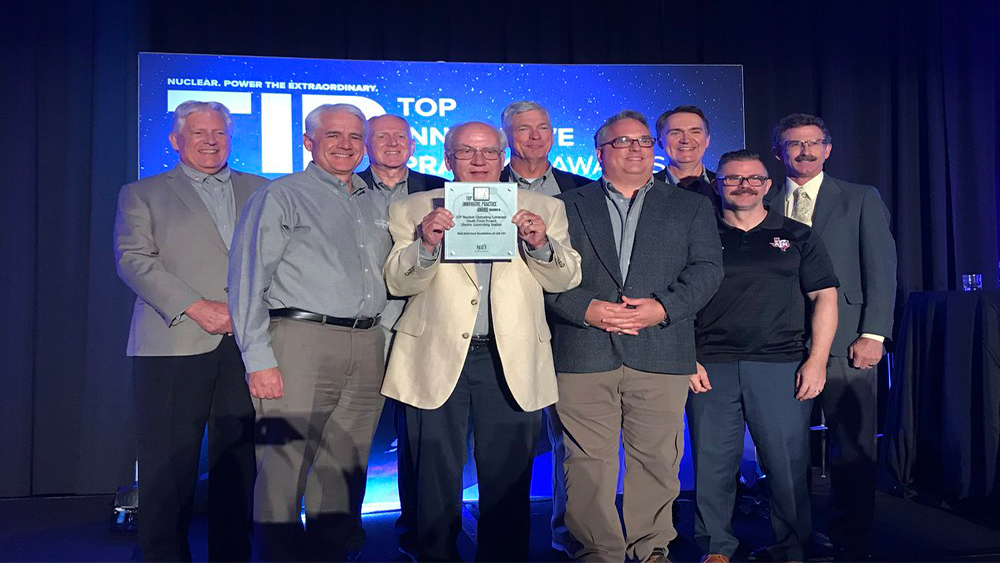
A Texas A&M University nuclear engineering research team collaborated with the South Texas Project Nuclear Operating Company (STPNOC) to solve Generic Safety Issue (GSI) -191 in 2017. In 2018, the Nuclear Energy Institute (NEI) awarded STPNOC a TIP Award for the innovative solution. NEI’s Top Innovation Practice Awards celebrate industry leaders for new practices, enhanced processes and improved technology.
For nearly 20 years, GSI-191 was an industry-wide issue. The issue resulted from a loss of coolant in a nuclear reactor, which can cause debris to be generated and potentially impact the performance of the safety system.
To solve this problem, the South Texas Project Nuclear Operating Company partnered with Texas A&M in 2010 to develop a widely applicable methodology. The solution was the first to be approved by the U.S. Nuclear Regulatory Commission, and can theoretically apply to any operating light water reactor plant across the country. The methodology provides guidance on evaluating the safety level of the plant against the
The department’s main attribution to this project was through the thermal hydraulics calculations and experimental studies performed, which included using new tools and existing tools in a new way. Texas A&M was the first to perform these types of complex analyses, with over 100 different scenarios simulated using cutting-edge simulation software.
The solution guards safety and benefits the industry, while the cost savings for the plant are an estimated $43 million.